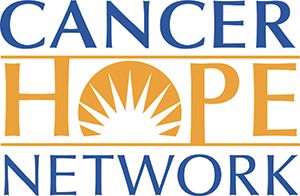Reasons Behind the Rage: How to Help When Cancer Patients Lash Out

Cancer survivor mentors share tips on managing difficult conversations and creating hope.
Arguing about treatment options. Fighting with loved ones. Lashing out at offers of help.
For every cancer patient fighting through tears and depression, there are others whose experience includes rage and frustration. For four decades, CHN’s trained volunteers have been providing one-on-one peer support to cancer patients and their loved ones, and they’ve seen it all. As they navigate hard conversations with their matches, CHN’s Programs Team is here to help.
Each month, we host a Volunteer Roundtable. Rounds are part of our ongoing Hope Check series and provide an opportunity for ongoing training and discussion.
Earlier this year, our discussion focused on handling controversial topics and finding hope in difficult conversations. The session was led by CHN social worker Maggie Koonz and included a review of best practices and literature.
The volunteers who joined the discussion represented a vast array of experiences and time with CHN. From Donna, who’s “been with Cancer Hope since before it was called Cancer Hope Network!” to Terry who was celebrating her one-week anniversary as a volunteer, the group was engaged in sharing their thoughts on difficult conversations.
The discussion centered on three deep-seated emotional reasons behind a patient’s outburst and ways to find what works for each conversation.
Fear
“When the topic is treatment, they may not be trying to convince you,” said Sue, a lung cancer survivor. “They may be trying to convince themselves. It’s ok to say I don’t know. They may think I’m an idiot, but they won’t start to fight with me or get me into a situation I don’t want to be part of.”
“When clients are bringing that topic up, it’s often driven by fear. Sometimes, they need comfort. Sometimes that fear is increased by the unknown. Using their words to change the subject and get them talking about their cancer or chemo can be helpful.” Donna, a support volunteer, has had similar experiences. “When someone is fighting, it’s often because of their fear.” She works to help people find practical ways forward through their fear.
Anger
For clients who suffered through misdiagnosis or botched treatments, there may be anger. Sometimes, that anger is directed at decisions they’ve made themselves. “I’m still mad at myself that I was a smoker” is common. Teres, a support volunteer who survived colon cancer, shuts those conversations down. “I encourage my clients to focus their energy on things they can change. Guilt doesn’t do anything.”
To connect with a cancer caregiver or survivor who understands, call 877-HOPENET (877.467.3638) or visit cancerhopenetwork.org.
